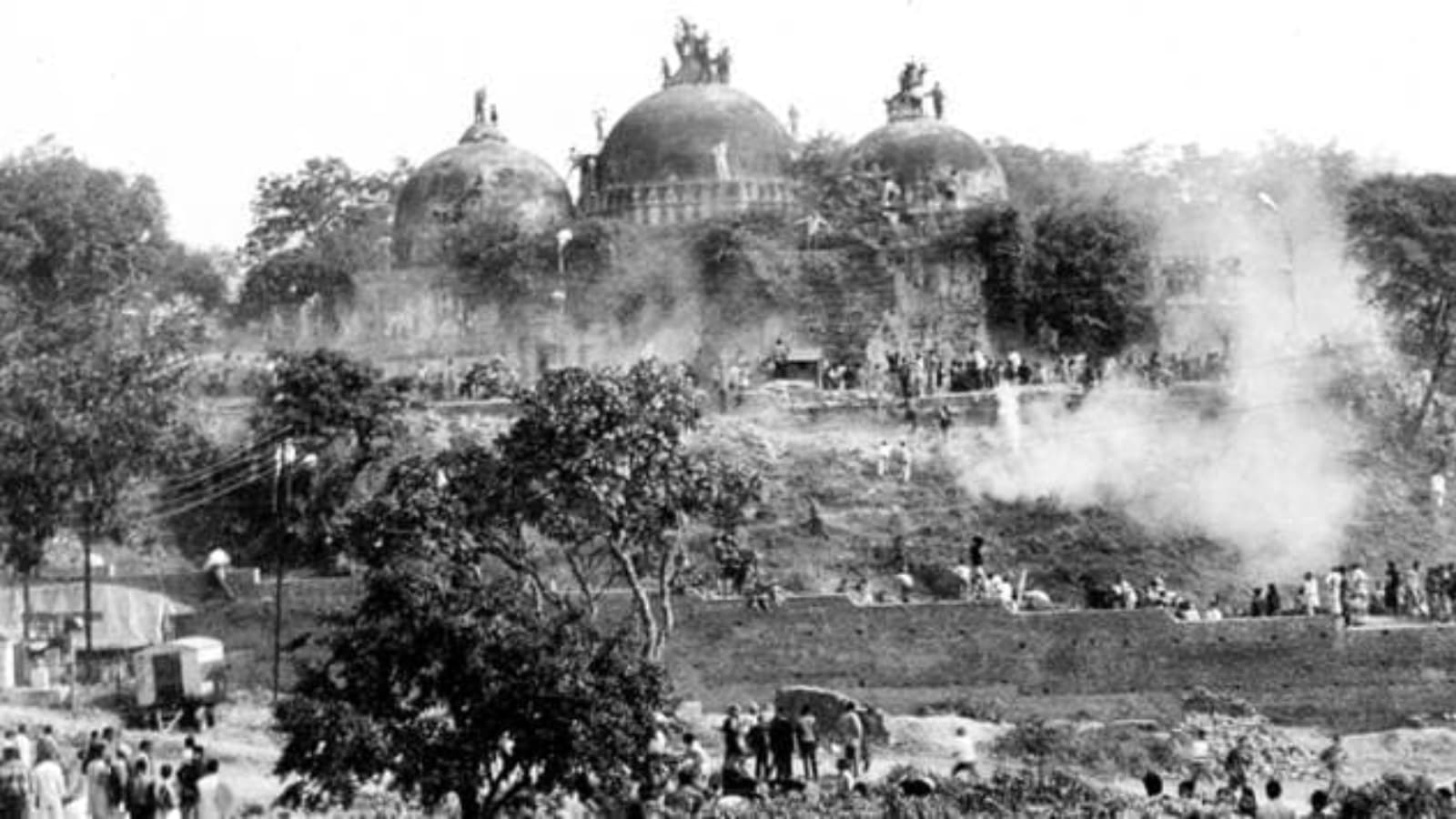“Remember my words, India will never be the same again.” These were spoken by my grandfather, Chief Justice A M Ahmadi, on December 6, 1992, as our family sat in front of the television and watched in horror the 400-year-old Babri mosque being torn down by a group of kar sevaks, violating the Supreme Court’s status quo orders. It was one of the few moments of dejection I witnessed in a man who, by nature, was optimistic and forward-looking.
Since then, the Indian Muslim has watched helplessly as mosque after mosque has been laid siege to, their religious character challenged in courts all over the country. And with each challenge, the ghosts of Babri return to haunt — because the intention remains clear: To replicate the mosque’s fate. What was once a devastating tragedy was slowly becoming a blueprint. The Places of Worship Act, 1991, which promised to protect the identity and religious character of all places of worship, stood all but forgotten.
When my grandfather, Justice Ahmadi, sat in the Supreme Court more than 30 years ago and dissented against the majority judgment in the Ayodhya Act case, his reasoning was drawn from a commitment to the constitutional tenets of secularism, dignity and equality for all. Withstanding immense pressures, he stated that he would only sign the majority draft if the other judges on the bench were willing to allocate a small parcel of land — just enough for a moulvi to lay a mat and offer namaaz, thereby maintaining the right of Muslims too, to offer prayers at the site.
This moment — which I recount in my book, The Fearless Judge: The Life and Times of Justice A M Ahmadi (Juggernaut) — encapsulates his understanding of the true meaning of a place of worship, and in turn, his unwavering commitment to the Constitution’s core values of equality and secularism. Because the essence of secularism lies in ensuring that all faiths are afforded equal dignity and space, both within the public sphere and in the eyes of the law. True secularism, therefore, does not simply tolerate religious diversity; it actively celebrates and protects it. And there was more — the duty of the judiciary to dispense justice; to protect citizens from extra-legal measures such as the unlawful demolition of a place of worship. His dissent was, therefore, an attempt to protect India’s pluralistic identity — a refusal to let religious identity be reduced to mere political and social currency. It came from a deep sense of duty, as a judge, to protect the rule of law.
But those were the 1990s. Times have changed and in 2024, it is obvious that secularism has long lost its place of pride in the crown of every politician, judge and public figure, replaced in many cases with a saffron flag, scarf or silent identity. Today, we find judges standing on VHP pulpits, swearing allegiance not to the Constitution but to majoritarianism.
But as my grandfather would always remind me when I expressed despair – “nothing stays the same forever”. And today, we find this is true. It was just earlier this month that Justice Rohinton Nariman, speaking in honour of Justice Ahmadi at the inaugural lecture of the Ahmadi Foundation, made a powerful statement. He said there was a need to “cauterise” the “hydra heads” that were the dozens of suits filed against mosques and dargahs, seeking their conversion. Because these legal battles are not simply property disputes; they are attempts to rewrite history, to erase religious identity, and to further fuel communal divisions.
And today, perhaps for the first time in 10 years, there is a palpable sense that the Supreme Court has found its way back to the constitutional promise of secularism. A special bench consisting of CJI Sanjiv Khanna, Justice Sanjay Kumar and Justice K V Vishwanathan passed an interim order December 12 restraining trial courts across the country from passing orders in suits challenging the ownership and title of religious places of worship. It was also directed that no new suits will be registered by Courts, and that in the case of pending suits, courts should not pass interim or final orders, including orders for survey.
most read
In doing so, the apex court has paused the emergence of these “hydra heads,” and shielded the Places of Worship Act from subversive obliteration. It is a moment that demands reflection and celebration, as the Court takes a stand not just for the law, but for the values that make India unique in the world — values of coexistence, respect, and unity.
It may be an interim order, yes, but it is a light in the darkness — a hopeful sign that India may still have the strength to return to the ideals of secularism and pluralism that have long defined its soul. It is a glimmer of hope that we, as a nation, may still be able to bridge the divides that threaten to tear us apart.
Vahanvaty is a socio-political writer and commentator and the author of ‘The Fearless Judge: The Life and Times of Justice A M Ahmadi’
Why should you buy our Subscription?
You want to be the smartest in the room.
You want access to our award-winning journalism.
You don’t want to be misled and misinformed.
Choose your subscription package


